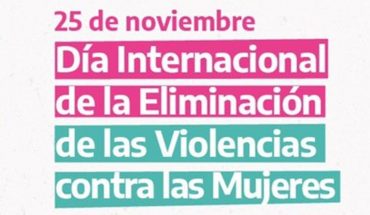Two hundred and thirty-eight pages has the Preliminary Report of study on the funeral market that verified information already known to those who work or minimally know the field. Initiated in 2021, it consisted of a complete review of the industry, addressing all its links with a focus on the market for the sale of goods and services by funeral homes, as well as those provided by cemeteries and crematoria.
For Vladimir Paredes, one of the founders of the FunerariApp.cl platform, it is “a study that was needed” to identify “not only the asymmetries of information in users and promoters of funeral services (in its various branches) but also to make transparent how this industry will grow and how it has to innovate”.
According to the records collected by the FNE, from a sample of funeral homes and cemeteries, the average expense for a complete funeral is $ 2,345,745 if the final destination was a burial, and $ 2,146,425 if it was a cremation.
With regard to burials, the existence of a “high price dispersion” was identified, where differences of up to 29% of the price on average were found. This same dispersion was found in the credits granted by cemeteries to acquire graves, where the differences can be up to 78% of the average interest.
On the other hand, “relevant barriers” were determined to enter the market and settle with cemeteries and crematoria. For example, in the case of the Metropolitan Region, the FNE concluded that the cemeteries in the area have “a maximum projected capacity of approximately 30 years”, considering a constant growth rate to that of the last 6 years.
“As for municipal cemeteries, there are precedents that account for a shortage in certain communes, due to a lack of adequate planning,” the report states.
The FNE also analyzed the contracts signed between the cemeteries and their users, where it found that “the nature of the right that the purchasers have over the graves would not be clearly defined,” which contrasts with the consumer survey, where 71% say they own the graves.
It also found “potentially abusive clauses”, especially in relation to the consequences derived from the failure of customers to pay graves and maintenance fees. In this line, the secondary services provided by cemeteries (such as maintenance, exhumations and reductions) could be fixed, in some cases “in an arbitrary, non-transparent and discriminatory manner,” the document detailed.
In the case of cremations, the study concluded that the rate of use in Chile “is still very low compared to other countries”, reaching approximately only 10% of services, which could be due to the scarcity of this service, since in “most regions” there is only one crematorium.
Nine recommendations for a fairer funeral market
Based on the results achieved, the FNE developed a set of recommendations that mostly require the Ministry of Health to modify the General Cemetery Regulations:
Promote a higher price of funeral homes by consumers.
Allow the purchase of funeral goods and services separately, without these only being able to be purchased packaged through plans.
Modify the regulation of mortuary benefits and their knowledge by consumers (death allowance and mortuary quota).
Regular pre-sale basics of funeral services.
Technically regulate the characteristics of the coffins, to allow the entry of new actors.
Improve planning for the installation and expansion of cemeteries and crematoria.
Improve the requirements and evaluation process of cemeteries and crematoria projects by administrative authorities.
Clarify the legal nature of the right that purchasers have with respect to graves.
Supervise and regulate aspects of contracts between consumers and cemeteries.
For Paredes, considering that 70% of people do not contribute before hiring a service allows us to recognize the three major barriers of this market.
“The first barrier is information, second the transparency of information in terms of prices and the third, as the prosecutor’s office says, open theRCADO so that new bidders enter and the user can choose better according to their economic capacities, “he said.
With the implementation of the measures proposed by the FNE, it is estimated that savings could be generated for people estimated at 39 billion pesos annually, equivalent to 45 million dollars.
According to the co-founder of the first digital funeral advisor, this first report represents an advance both for users and for a market “that has to grow” because there are “new needs” and we are already thinking, for example, of “more sustainable” deaths.
“I think it is a very good first analysis, it is interesting that the viability for the next 30 years is raised, as well as the good reception of Minister Grau before the recommendations,” he reflected.
This preliminary report is subject to public consultation until Friday, December 30, 2022 and those interested in submitting their comments can do so in box estudiosdemercado@fne.gob.cl.
At the end of this process, the FNE will publish the final report and send its final recommendations to the Executive Branch for evaluation.
Follow us on





